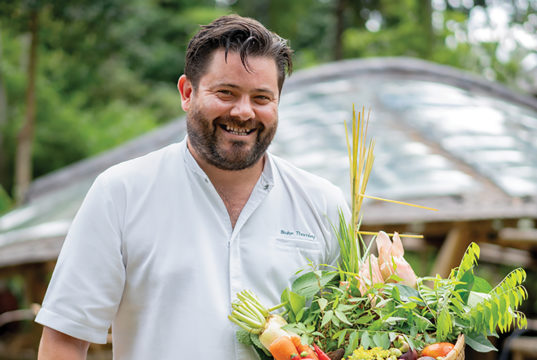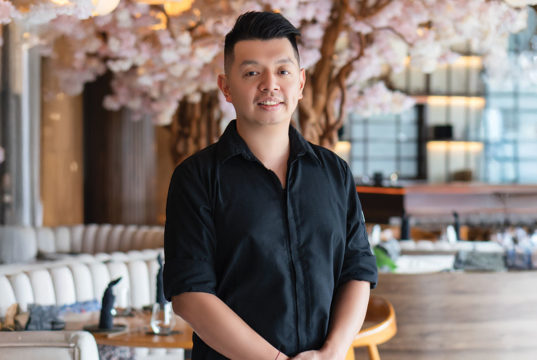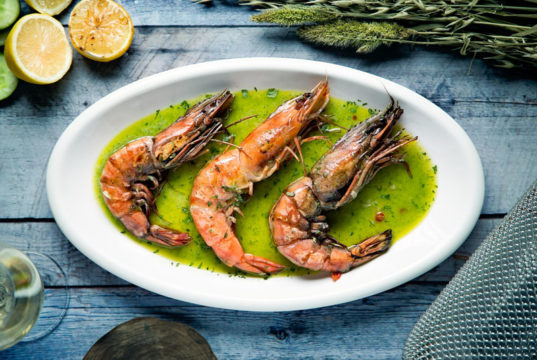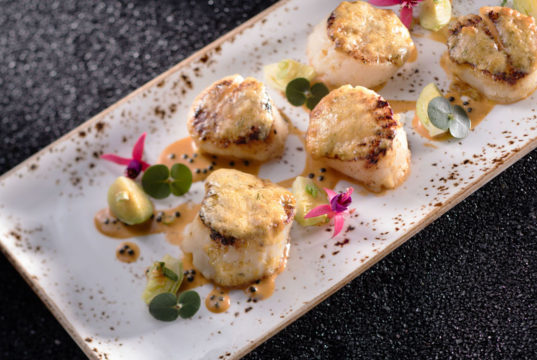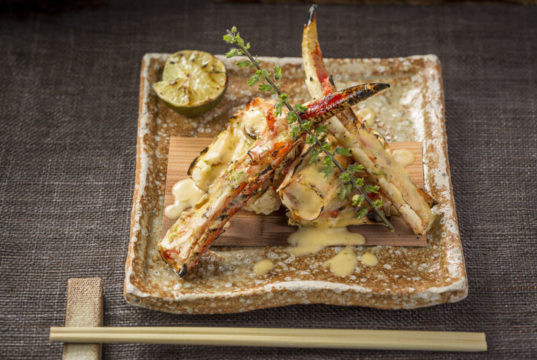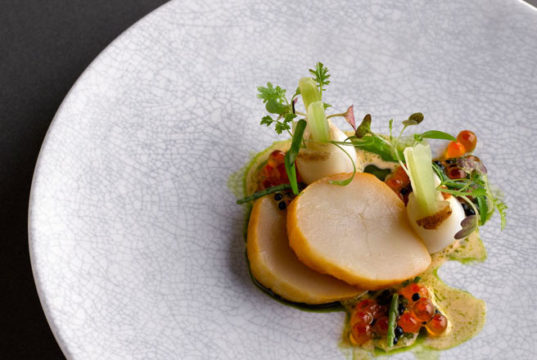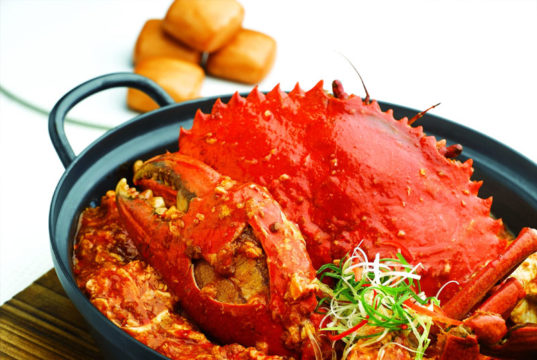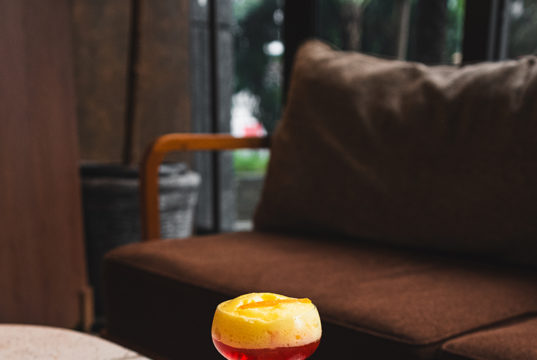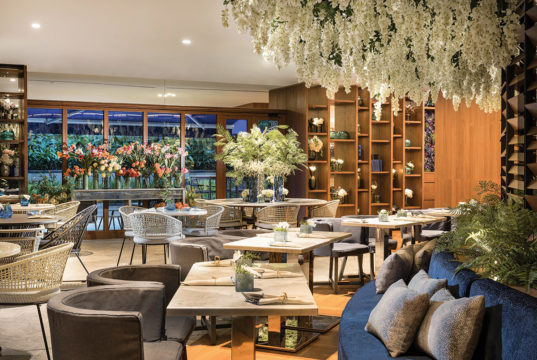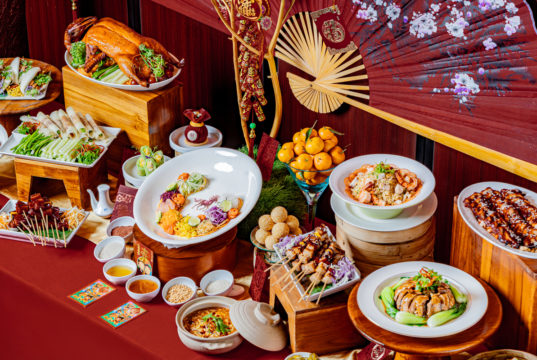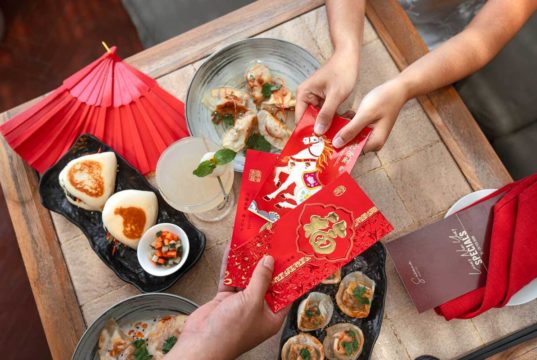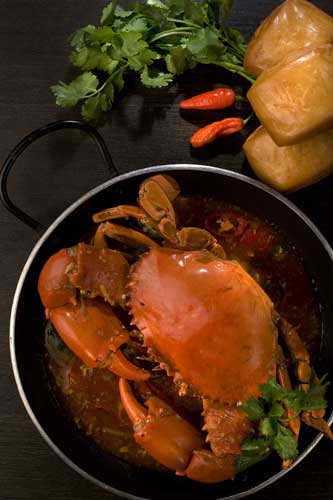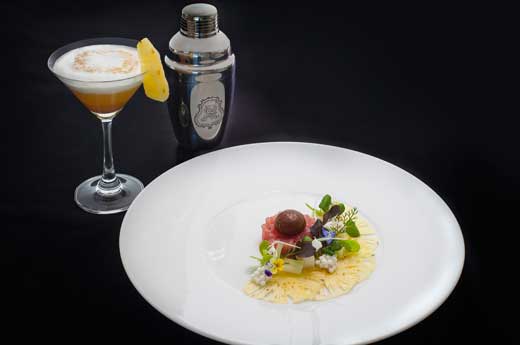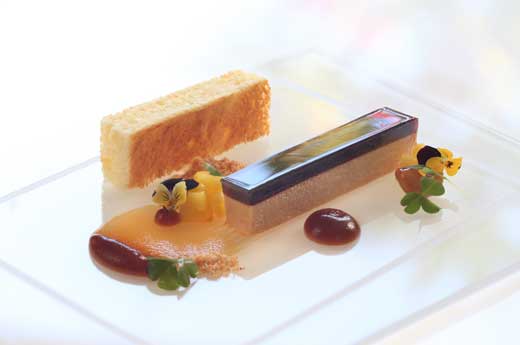Small bowls full of flavour
Lilin seamlessly fuses Spanish/Indo Tapas with classic Indonesian flavours and local produce to create an authentic east-meets-west experience for your taste buds.
Ensconced within Seminyak’s extensive Potato Head Beach Club – one of Bali’s hippest and most successful venues – Lilin has been popular since its launch in 2011. Best known for its fusion cuisine and funky seaside dining, Lilin presents its mouthwatering delights in a snappy, two-sectioned menu. The first section offers more than twenty different kinds of Tapas, delicate appetizers in individual bowls served in the traditional Spanish style to facilitate sharing, but, at the same time, showcasing authentic Indonesian recipes from across the archipelago. Most Tapas are based on Balinese cuisine, though other islands – such as Java, Sulawesi and Sumatra – are also well represented. The live seafood section of the menu offers Indonesian dishes made with the freshest, premium quality seafood harvested from local waters, while a handful of main course meals include beloved archipelago classics, such as Ayam Betutu Bumbu Rajang – slow oven-roasted chicken with Balinese spices.
Fans of Lilin (and there are many) will recall the restaurant’s pioneering Tapas-meets-Southeast Asia twists and live seafood hybrids. However, Lilin’s acclaimed local chef, Gede Susila, an innovative force in the kitchen from the start, changed the menu to an entirely Indonesian affair, declaring, “We want Lilin recognized as one of the best, world-class, Indonesian-focused restaurants in Asia.” This culinary shift ties in with the proud Balinese chef’s original home-grown concept; for years, Gede has been passionately championing the merits of locally sourced, natural and fresh produce from across Indonesia.
Chef Gede mainly works with the ingredients he finds in Bali, which are more than abundant: fresh produce and aromatic herbs and spices from Bedugul’s highland farms and recently caught seafood from all over Indonesia. Everything is freshly made and almost nothing imported. Even Lilin’s Spanish-fusion sangria, created by a world- renowned mixologist, are subtly enhanced with archipelagic spices and fruits.
These hybrid drinks, such as the divine Lemongrass and Mango Sangria, can be consumed by the bowl – reinforcing Lilin’s Spanish-influenced communal dining concept. So too does the restaurant’s semi-open seating arrangements and communal-style dining experience gone posh, inspire communal feasting.
My piquant choices from the dinner menu and four Tapas set, costing slightly more than IDR195,000, beautifully represented the archipelago with a smorgasbord of naturally vibrant hues and spiciness. The iconic Sumatran beef dish Rendang takes Lilin’s locally sourced focus to an extreme, the beef being purchased from a nearby farm. Chef Gede assured me that local beef was more flavoursome than imported varieties. Slow cooked over a fire, the meat is surprisingly tender and tasty, enhanced with fresh spices and coconut milk.
Spicy Shredded Chicken showcases a traditional Balinese village dish, smashed chilies contributing to the meat’s overall red hue, but tempered with fresh kaffir lime leaves and coconut oil. The other Indonesian dishes suggest influences from nearby Asian countries: Fried Tofu Sambal Curry, with spiced tofu cubes in fragrant, creamy coconut and lemongrass sauce, screams Thai, while the crunchy Golden Prawn Balls, mummified in rice paper ribbons, deep-fried and dipped in a chili-based plum sauce, seem inspired by Chinese heritage.
The Indonesian classic, nasi goreng (fried rice with egg and vegetables), may look bland on the menu, but Lilin surprises and delights with a flavourful mix of spices – including galangal and candlenut – usually reserved for Balinese ceremonial dishes.
Sambal is an essential, traditional Indonesian condiment, and at Lilin, four freshly pounded, chili-based varieties of sambal – with textures from chunky to smooth – are offered with your meal. The varieties of sambal reflect the diverse flavours of Indonesian cuisine, with levels of spiciness ranging from tingling and mild to just plain evil. All, however, are deliciously pungent, including Sulawesi-style Sambal Dabu-Dabu – with freshly cut red and green tomatoes, chilies, green mango, shallots and lime juice – and the fiercest, East Javanese Sambal Tempong – a tomato-based sambal with spicy hot ingredients kept raw resulting in an explosive, taste bud sensation. Keep a bottle of EQUIL Sparkling Natural Mineral Water handy to cool down.
The Tapas may be marked as entrees, but I have just enough room left for dessert. Caramelized Fermented Cassava Fritters complimented with coconut sorbet, fittingly rounds off the spice fest, while Lintang Sangria (crisp white wine and citrus vodka infused with apples and passion fruit) makes for a refreshing accompaniment.
With daily DJ sessions, Lilin is the perfect perch for Seminyak’s mango-hued sunsets; couples may prefer the long, wooden counter facing the infinity pool and crashing surf or perhaps the comfy daybeds on the extended pool deck – recently introduced as another place for dining. Even with such changes, Lilin is still a culinary sensation.




